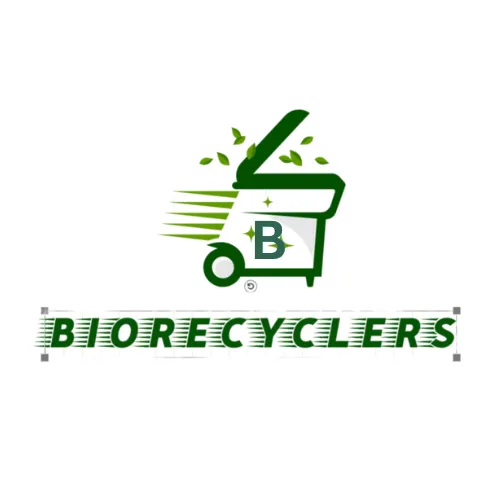BIORECYCLERS
BLOG

The Importance of Waste Segregation at Source: Building a Cleaner and Healthier Nigeria
One of the most overlooked but most effective ways to tackle the growing waste problem in Nigeria is waste segregation at the source. Simply put, it means sorting your waste properly right where it is generated—whether in homes, offices, schools, or marketplaces.
In cities like Osogbo and beyond, unsegregated waste clogs gutters, pollutes water, breeds disease, and wastes precious recycling opportunities. With population growth, urbanization, and increasing consumption, there is no better time than now to embrace source-level waste segregation.
In this post, we’ll explore what waste segregation at source means, why it matters, how it works, and what Biorecyclers is doing to help Nigerians make it part of daily life.
Small Call to Action Headline

Understanding E-Waste: Why Proper Disposal Matters in Today’s Tech World
E-waste, short for electronic waste, refers to discarded electrical or electronic devices. These include everything from old phones and broken televisions to outdated computers and damaged printers. As Nigeria’s digital economy grows and the use of electronics expands across homes and businesses, the issue of e-waste has become urgent.According to the Global E-waste Monitor, Nigeria generates over 290,000 tonnes of e-waste every year. Yet most of it is either burned openly, dumped in landfills, or improperly handled, posing serious threats to human health, the environment, and our national development.In this blog post, we’ll explore why proper e-waste disposal matters, what dangers lie in ignoring it, and how Biorecyclers is helping communities in Osogbo and beyond manage e-waste safely and sustainably.
Small Call to Action Headline

Top 5 Recycling Tips Every Household in Nigeria Should Know
Recycling isn’t just an industrial task—it starts right from our homes. Every piece of plastic, food waste, paper, or bottle tossed carelessly adds up to a massive national problem. Nigeria, as one of Africa’s largest economies, generates over 32 million tonnes of waste each year, yet only a small fraction is properly recycled.At Biorecyclers, we believe that real change begins at the grassroots. If each household in Nigeria embraced a few key recycling habits, we could drastically reduce pollution, improve public health, and create a circular economy that benefits everyone.In this blog post, we’ll share the Top 5 Recycling Tips every Nigerian household should follow. These tips are simple, practical, and cost-effective—and they can help you turn your trash into something valuable.
Small Call to Action Headline

The Waste Problem in Nigeria: How Biorecyclers Are Making a Difference in Osogbo
Nigeria, Africa’s most populous nation, generates an estimated 32 million tons of solid waste annually, making it one of the largest waste producers in sub-Saharan Africa. From Lagos to Kano, Port Harcourt to Abuja—and especially in rising urban canters like Osogbo, the capital of Osun State—waste management has become a national challenge. The consequences? Blocked drainages, environmental pollution, flooding, disease outbreaks, and an unsightly urban landscape. Despite several government efforts, the informal waste sector, inadequate infrastructure, lack of public awareness, and poor policy implementation have all contributed to the worsening waste crisis in Nigeria. But amid the problem, a solution is rising from within. Biorecyclers, a forward-thinking waste management company headquartered in Osogbo, is taking bold steps to tackle the issue and offer cleaner, sustainable solutions to individuals, communities, and businesses.
Small Call to Action Headline

Large Call to Action Headline
Your Paragraph text goes Lorem ipsum dolor sit amet, consectetur adipisicing elit. Autem dolore, alias, numquam enim ab voluptate id quam harum ducimus cupiditate similique quisquam et deserunt, recusandae. here
Small Call to Action Headline
Small Call to Action Headline

Large Call to Action Headline
Your Paragraph text goes Lorem ipsum dolor sit amet, consectetur adipisicing elit. Autem dolore, alias, numquam enim ab voluptate id quam harum ducimus cupiditate similique quisquam et deserunt, recusandae. here
Small Call to Action Headline
Small Call to Action Headline

Copyright © 2025 | All rights reserved | Powered By R1 Promo Media
Mail
WhatsApp
Facebook
Instagram